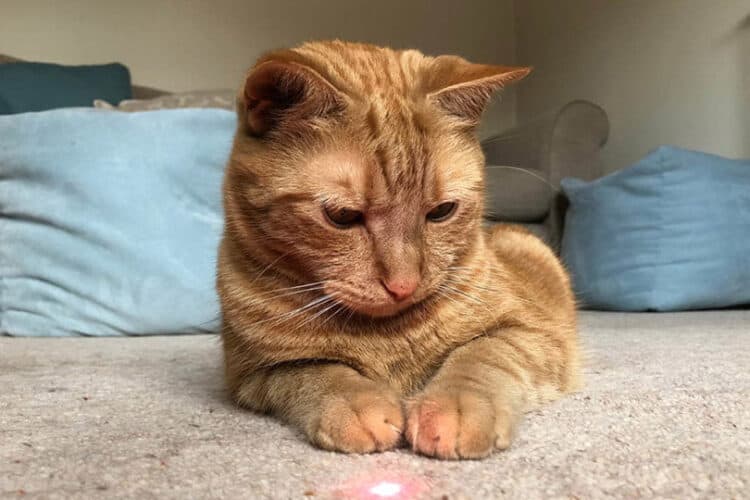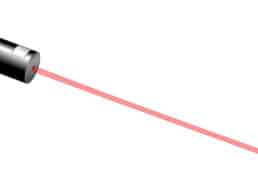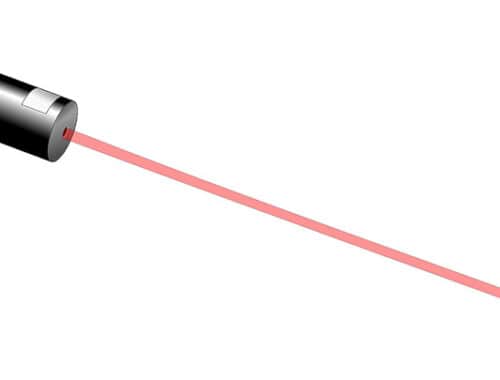There is a great deal of debate surrounding the safety of laser pointers for cats. Most of the concern seems to focus on the beam being bad for their eyes. While you obviously shouldn’t shine it into your cat’s eyes on purpose, this isn’t the problem with laser pointers. The reason laser pointers can be bad for your cat is that they can leave them with an incredibly high level of frustration.
The Frustration of Laser Toys
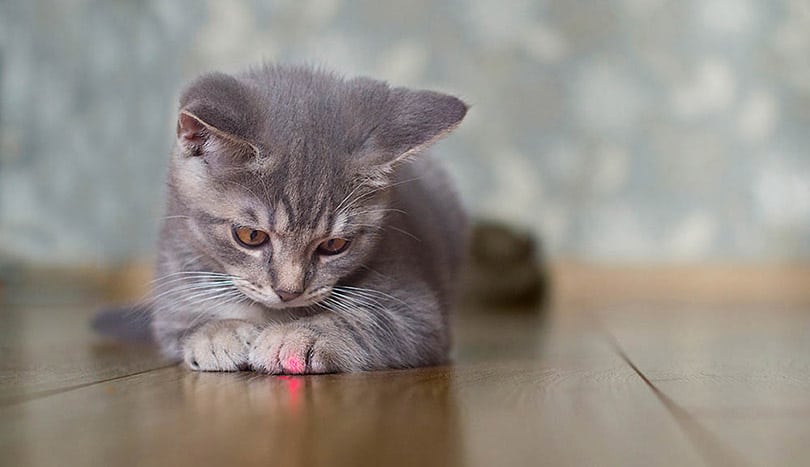
Many cats love to chase after a laser beam. Once your kitty lays eyes on that wiggly light beam, there is nothing that matters more than catching it. Unfortunately, it’s a light beam and there’s nothing there to actually catch. For your cat, there is no closure and no way to “win.” This could leave them psychologically damaged or frustrated at the end of the game.
The games that cats play are all based on their natural prey drive. Whether your cat is chasing a feather on the end of a fishing line or a wind-up mouse toy, they chase the toy, pounce on it, bat it, swat it, and do whatever else to catch their prey. While we don’t recommend giving your cat a live mouse, their actions with their toys are exactly what they do to stalk live prey.
Laser tag activates all these predatorial instincts in a cat but without a satisfying resolution to the game. The cat gets excited about the hunt, but they can never catch the prey. For your cat, this is akin to mental torture.
Other Hidden Dangers of Laser Pointers
Cats can get outstanding amounts of exercise from chasing any type of toy, including lasers. They run, jump, climb, and pounce, which is fabulous for your cat’s health and longevity. However, this activity is best encouraged with a physical toy.
The frustration at being unable to catch the elusive red dot can lead your kitty to develop bad behaviors like clawing at furniture or biting. It isn’t entirely clear why this behavior develops, but it’s theorized that it’s due to pent-up aggression.
Some cats skulk around the house after playing with laser pointers and exhibit symptoms of anxiety or paranoia. Others will chase dots on the floor that disappeared hours ago.
Guidelines for Laser Pointers
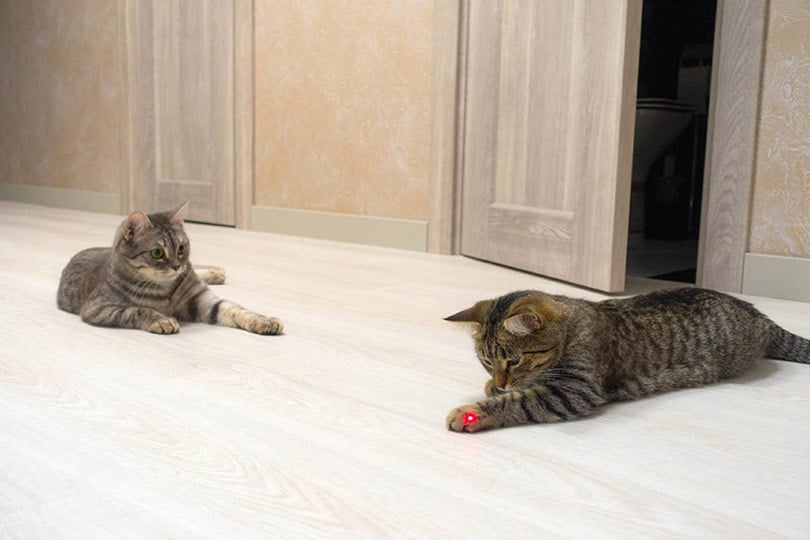
If your cat loves to chase laser pointers and doesn’t seem to be developing bad behavior after playing with one, it’s not wrong to keeping using it. You just need to play with the laser appropriately and in a way that won’t cause your cat unnecessary stress.
Here are general guidelines on how to safely play with a laser with your cat:
- Don’t overwork your cat. If your cat isn’t used to exercising intensely, take it slow.
- Never shine the laser in your cat’s eyes or too high up a wall where your cat could jump and hurt themselves.
- With any chase game, your cat needs to occasionally catch the prey. No one likes a game where they always lose. End the game by shining the light on a physical toy that they can tackle, thus “catching” the dot.
Conclusion
Cats love to chase laser pointers, and it can be a great form of exercise, but they should be used with caution. Lasers can cause mental distress and frustration for some cats because there is no end to the game where they can catch their prey. Choose games for your cat where they can win at least some of the time to avoid causing them undue stress.
Featured Image Credit: Laurav1984, Shutterstock
